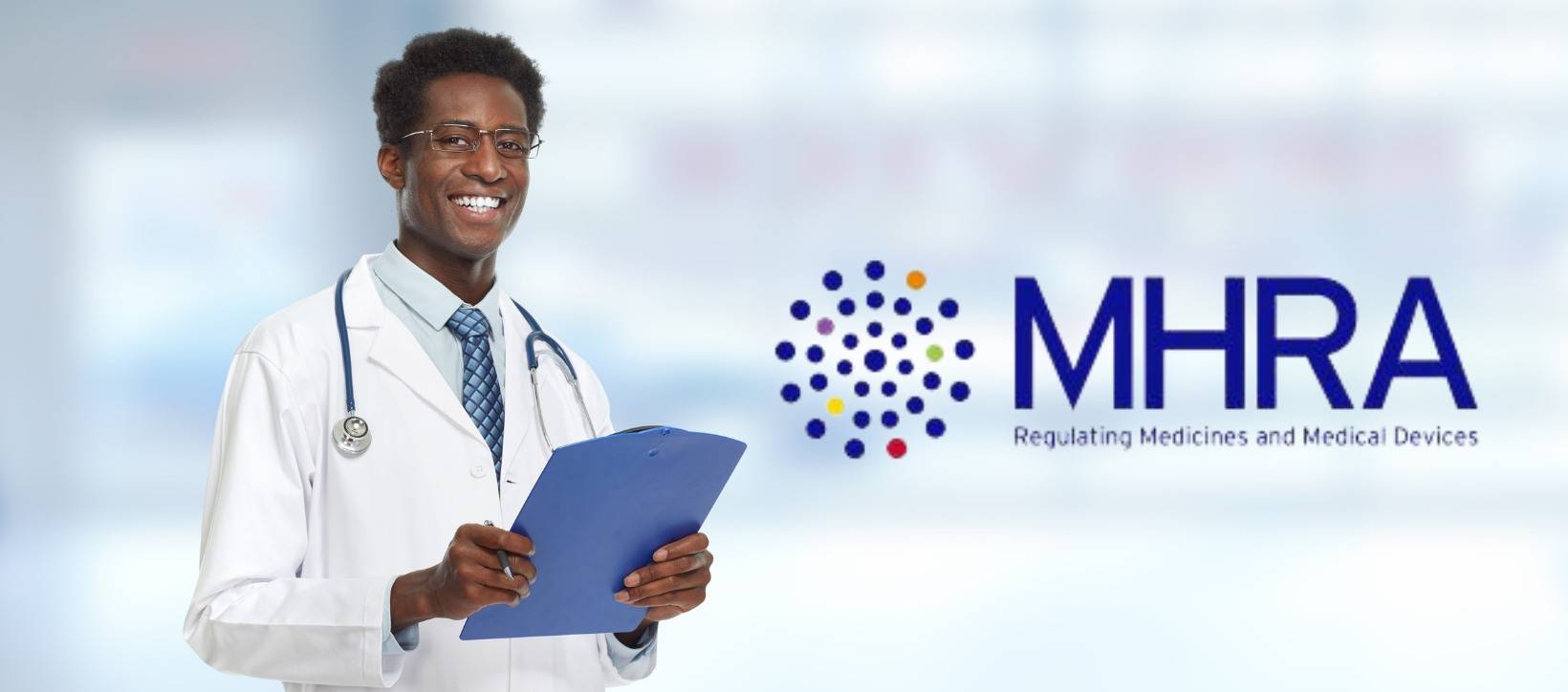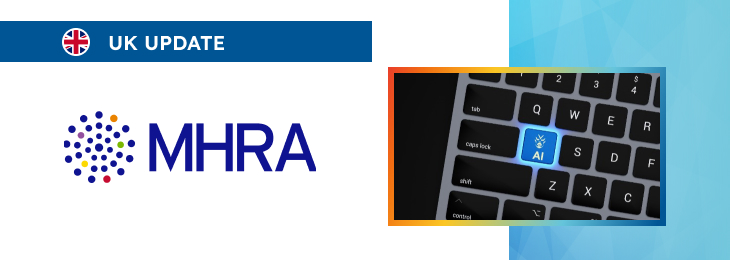The article provides a general overview of the new regulatory framework for innovative AI-based healthcare products intended to be marketed and used in the UK.

Table of content
The Medicines and Healthcare products Regulatory Agency (MHRA), the UK regulating authority in the sphere of medical devices, has published an official notice dedicated to AI Airlock – a special regulatory sandbox for AI as a Medical Device (AIaMD). The document provides general information about the regulatory approach, as well as additional clarifications and recommendations to be taken into consideration by medical device manufacturers (software developers) and other parties involved in order to ensure compliance.
At the same time, the authority reserves the right to make changes to the notice and information provided therein, should it be reasonably necessary to reflect corresponding amendments to the underlying regulations.
Overview of MHRA’s Role and Reforms
The MHRA as the primary regulator for medical devices in the UK health and social care sector, is dedicated to ensuring patient safety. Currently, the MHRA is undergoing a significant reform of medical device regulations, including those for Software as a Medical Device (SaMD) and Artificial Intelligence as a Medical Device (AIaMD) products.
These reforms are designed to build upon a robust regulatory framework encompassing legislation, guidance, and standards, addressing known challenges, and aligning with international regulatory standards. The authority acknowledges the unique nature of the risks associated with AI-based products, as well as the necessity of establishing a proper balance between creating a favorable framework facilitating further development of innovative products while ensuring the safety of patients.

Increasing Innovations in AIaMD
The authority further acknowledges the increasing supply of AI-based products intended to be used in the sphere of healthcare. These innovations hold the potential to revolutionize healthcare, ensuring the UK remains at the forefront of cutting-edge research and offering enhanced solutions to meet patient and public needs.
However, this potential also introduces new challenges, shifts in risks, and safety concerns. As it was mentioned before, the MHRA is intended to balance rigorous oversight to protect patient safety with the flexibility needed to address the unique challenges presented by these technologies, ensuring that regulations do not unduly block innovation.
Mitigating Risks Through Existing Processes
According to the document, many known risks associated with SaMD/AIaMD products are currently mitigated through established regulatory requirements and processes, such as Clinical Investigations and Post Market Surveillance. The existing publications and future guidance documents issued previously by the MHRA, as outlined in the Software and AI as a Medical Device Change Programme, offer additional support to manufacturers.
With the rapid pace of innovation, the ongoing debate between rules-based versus principles-based regulation of AI is currently taking place across various sectors globally. Furthermore, the effective and efficient regulation of AIaMD necessitates increased collaboration and more proactive, agile approaches to address many unanswered questions.
The AI Airlock Project: Introduction
The MHRA AI Airlock project is now in progress, with a call for product applications to be launched shortly. This initiative is generally intended to enhance understanding and accelerate solutions to novel regulatory challenges associated with AIaMD.
As part of the project’s scoping and setup, the MHRA has reviewed the achievements of other regulators through the use of regulatory sandboxes, intending to build an improved process based on the lessons learned.
Distinguishing Features of AI Airlock
A key distinction of the AI Airlock from other regulatory sandboxes is the emphasis on collaboration across various regulatory, governance, and assurance organizations in healthcare. By utilizing real-world products, the AI Airlock will unite expertise from within the MHRA and key partners, including UK Approved Bodies, the NHS, and other regulators.
The outcomes of this collaboration will inform subsequent phases of the AI Airlock in the short term and guide future MHRA policies and guidance, while also exploring the limitations of existing approaches to demonstrating regulatory compliance.
Team AB
Launched in February 2024, Team AB brings together expertise from Approved Bodies to enhance consistency in interpreting UK medical device regulatory requirements. The MHRA is excited to collaborate with Team AB on the AI Airlock project to address and navigate regulatory challenges for AIaMD, utilizing collective regulatory knowledge to inform and standardize policy positions in this rapidly evolving field.
The NHS
The AI Airlock project will work closely with the Department of Health and Social Care (DHSC) and the NHS AI Lab, leveraging connections and expertise within the healthcare system. Given that many AIaMD products are deployed via NHS infrastructure, collaboration with NHS England and health services in the devolved nations is crucial for regulatory discussions concerning deployment and post-market surveillance.
Objectives and Stakeholder Benefits
As explained by the MHRA, the primary objective of AI Airlock is to identify regulatory challenges related to AIaMD and work collaboratively to understand and potentially mitigate any uncovered risks. Relevant stakeholders and product providers will benefit from AI Airlock product reports, which will aid in further funding or assessment activities.
Although guaranteeing regulatory conformity is not the project’s aim, involvement will benefit manufacturers on their regulatory journey.
Academic Engagement and Future Considerations
The MHRA also plans to engage academic expertise to evaluate the multi-partner approach to using regulatory sandboxes and its impact on the innovation landscape. Further funding, potential regulatory changes, and additional guidance documents will be considered for future sandboxes beyond AIaMD.
Pilot Project Focus
At this stage, the pilot project will concentrate on a small number of products, addressing a range of medical device regulatory issues across different healthcare or clinical disciplines and levels of product regulatory maturity.
Regulatory challenges could include understanding safety, validation, and design implications of:
- Detecting and reporting product performance errors and failure modes in post-market surveillance data.
- Increased automation and decision-making responsibilities within clinical workflows and producing pre-market evidence of safety.
- Addressing the complexities of generative AI-based medical devices.
Application and Selection
AI Airlock will open for applications following the project webinar on 23 July 2024. Applications will be sifted and prioritized based on criteria, with 4-6 products selected for the pilot project.
Each product airlock will be customized to meet the specific needs of the innovation, ensuring flexibility to address potential issues and maximize opportunities to explore concerns within acceptable risk levels. Products may start in one category of the AI Airlock and progress to others, or be removed if significant safety concerns are identified.
Successful applicants must collaborate transparently with the project team, and all parties will produce reports summarizing achievements and lessons learned to inform regulatory policy and guidance.
Conclusion
In summary, the AI Airlock project represents a significant step forward in addressing the regulatory challenges of AIaMD products. The MHRA expects an efficient collaboration to become a cornerstone of the new framework, ensuring the support for further development of innovative products together with public health protection.
How Can RegDesk Help?
RegDesk is an AI-powered Regulatory Information Management System that provides medical device companies with regulatory intelligence for over 120 markets worldwide. It can help you prepare and publish global applications, manage standards, run change assessments, and obtain real-time alerts on regulatory changes through a centralized platform. Global expansion has never been this simple.

